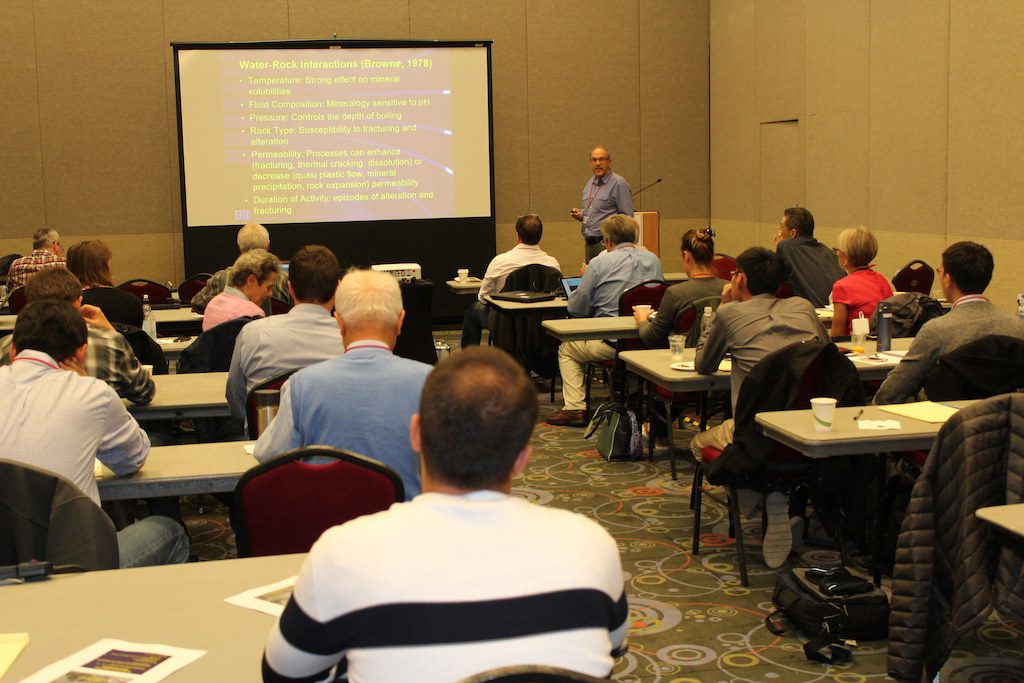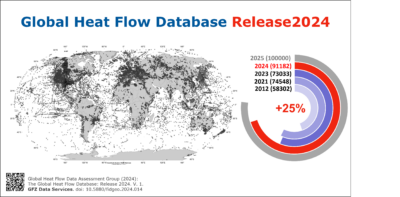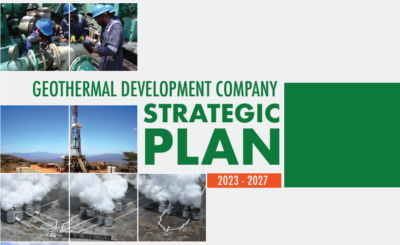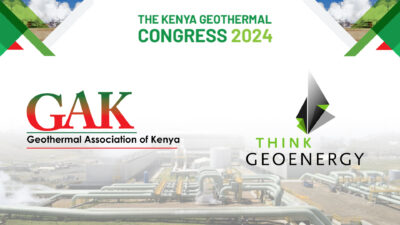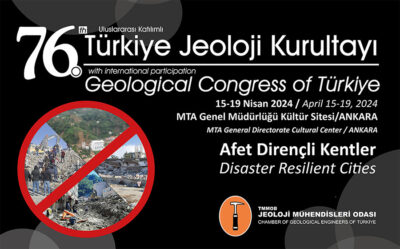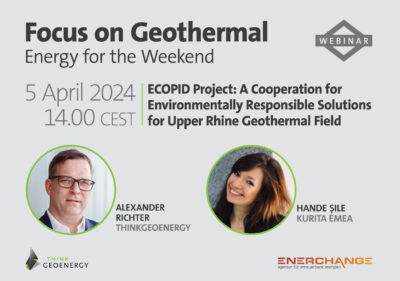Call for Abstracts – GRC Annual Meeting 2018 – Deadline 30 March 2018
The Geothermal Resources Council has published a Call for Abstracts for its Annual Meeting to be held October 14-17, 2018 in Reno, Nevada. Deadline for the abstracts is March 30, 2018.
The Geothermal Resources Council has issued a Call for Abstracts for the 2018 GRC Annual Meeting. Deadline is 30 March 2018.
The Geothermal Resources Council (GRC) invites you to present your latest technical work in geothermal research, exploration, development and utilization at GRC’s 42nd Annual Meeting & Expo from October 14-17, 2018 at the Peppermill Resort Spa Casino, Reno, Nevada.
Anyone who wants to present a paper at the GRC Annual Meeting must submit an abstract!
Successful selection to present at the Geothermal Resources Council 2018 Annual Meeting & Expo is prestigious and recognizes the presenter as a top industry expert. International participation is the key to the success of the GRC Annual Meeting technical programs and we encourage geothermal researchers and experts from around the world to submit their work for consideration to be presented at the GRC 2018 Annual Meeting & Expo.
Authors may submit a poster and/or oral technical presentation at the GRC’s 2018 Annual Meeting & Expo.
The Abstract submission deadline is Friday, March 30th, 2018.
2018 General Paper Topics – (Please select “Open” in the Subject Area of the CMT website)
- Business Development
- Country Updates
- Direct Use/Heat Pumps
- Drilling
- Exploration and Resource Assessment
- Field Operations
- Geochemistry
- Geology
- Geophysics
- Mineral Extraction
- Modeling and Simulation
- Operations and Maintenance
- Regional Updates
- Regulatory and Policy
- Reservoir Engineering and Management
- Sedimentary Basins
- Utility and Transmission
- Other
Themed Session Topics
For a description of each themed session and contact information click here:
- Design and Implementation of New Technology (Session Chair: Will Osborn)
- Distributed Geothermal and Where Can It Be Implemented (Session Chair: Hezy Ram)
- Earth Modeling of Geothermal Systems (Session Chair: Robert Podgorney & Jeremy O’Brien)
- EGS COLLAB – A Path to FORGE (Session Chair: Tim Kneafsey & Doug Blankenship & Lauren Boyd)
- Environmental and Social Review for International Funding (Session Chair: Laurie Hietter)
- FORGE Research – enabling EGS (Session Chair: Lauren Boyd)
- Geothermal Energy in Canada: Existing Projects and Examining the Potential to Use Existing Oil and Gas Wells (Session Chair: Zach Harmer & Alison Thompson)
- Geothermal Production from Oil and Gas Fields (Session Chair: Kai Wang)
- Grid Effects from adding 4,000 GWh/yr of Wind, Solar, or Geothermal Generation (Session Chair: Kevin Kitz)
- How the Best Practice Management of Geothermal Resources (Session Chair: Paul Siratovich)
- Iceland Geothermal (Session Chair: Juliet Newson)
- Industrial Direct Use (Session Chair: Andy Blair)
- Innovations and Applications in Data Management Practices for Geothermal Development (Session Chair: Ashley Ndir)
- International Research on Engineered and Superhot Geothermal Systems (Session Chair: Egbert Jolie)
- Risk Mitigation Schemes in the World (Session Chair: Jean Jacques Graff & Christian Boissavy & Virginie Schmidle-Bloch)
- Sustainability and Community Engagement for Geothermal Development (Session Chair: Caity Smith & Aroha Campbell)
- Deep Direct-Use Feasibility Studies (Session Chair: Arlene Anderson)
Instructions to submit your abstract (only online submissions will be accepted):
CMT Website: https://cmt3.research.microsoft.com/GRC2018
- Create a login and profile on the CMT website (if you submitted a paper last year, please use the same login or click on “Reset Password” Tab ).
- Type the Title and Abstract on the CMT website along with other required information. The abstract is limited to 2000 characters. Please do NOT upload your abstract in the file section of the CMT – this section is for your draft paper after your abstract has been accepted.
- Please see below for paper topics.
- Abstracts will be reviewed during March 30 – April 6th and Authors will be notified of their status (accepted/rejected).
Authors for all accepted abstracts will be given further instructions upon notification.
Please direct all content related questions to:
- Session Chair listed with the session descriptions
- Robert Podgorney, Technical Chairman, at robert.podgorney@inl.gov
Please direct all format and general submission questions to:
- Anh Lay at alay@geothermal.org or (530) 758-2360 ext. 100
Further details via link below.
Source: GRC
